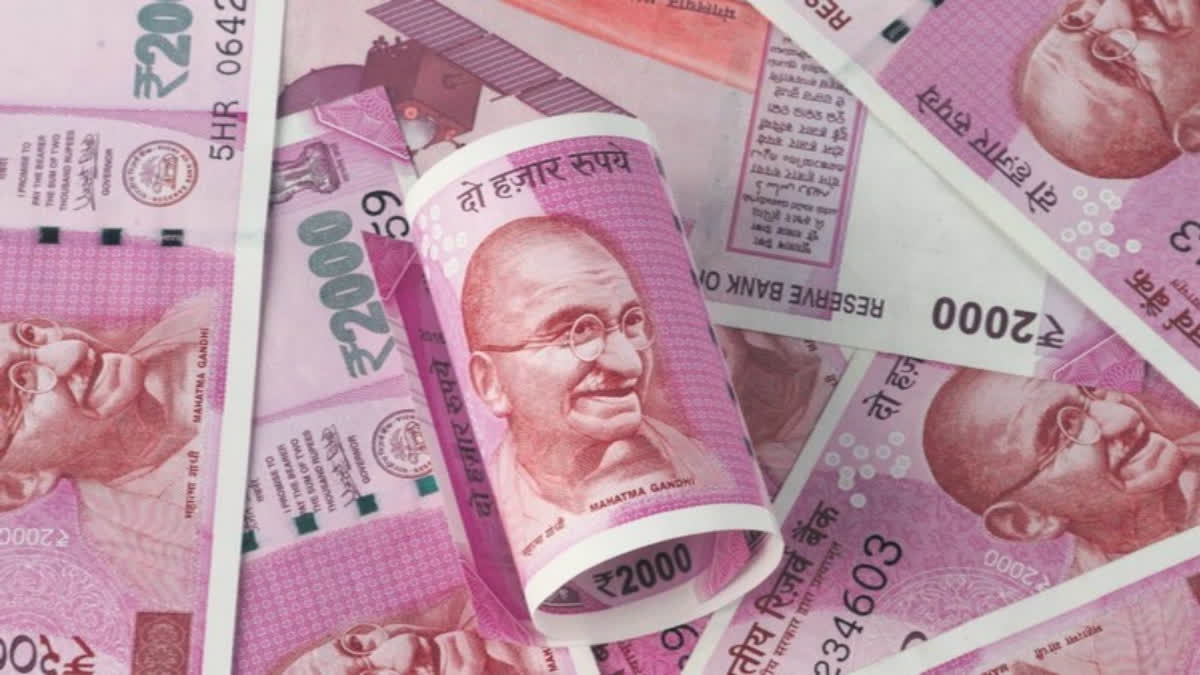New Delhi: The Delhi High Court is likely to pronounce on Monday its order on a public interest litigation (PIL) challenging the RBI's decision to withdraw Rs 2,000 denomination banknotes from circulation. A bench of Chief Justice Satish Chandra Sharma and Justice Subramonium Prasad had reserved its order on the PIL on May 30 after hearing the counsels for the petitioner and the RBI.
Petitioner Rajneesh Bhaskar Gupta has contended that the Reserve Bank of India (RBI) has no power to withdraw Rs 2,000 currency notes from circulation and only the Centre could have taken a decision in this regard. In his petition, the petitioner submitted that the RBI has no independent power to direct the non-issue or discontinuance of issue of banknotes of any denominational values and this power is vested only with the Centre under section 24 (2) of the RBI Act, 1934.
Regarding the high court's May 29 judgment on a PIL which had challenged the notifications by the RBI and SBI enabling exchange of Rs 2,000 banknotes without requisition slip and identity proof, Agarwal had said that was a completely different issue. The plea was opposed by the RBI which said it was only withdrawing Rs 2,000 notes from circulation which was a currency management exercise and a matter of economic policy.
Earlier, the high court had dismissed the plea by lawyer Ashwini Kumar Upadhyay, which claimed notifications by the RBI and SBI enabling exchange of Rs 2,000 banknotes without proof were arbitrary and against the laws enacted to curb corruption, saying it has been done to avoid inconvenience to citizens and the court cannot sit as an appellate authority on a policy decision.
The high court has maintained it cannot be said that the government's decision is perverse or arbitrary or it encourages black money, money laundering, profiteering or abets corruption. The instant petition stated that the RBI notification gave no other reason except clean note policy for the big arbitrary decision of withdrawing the Rs 2,000 denomination banknotes from circulation without analysis of the expected problems of the public at large.
RBI has not cleared so far what is the benefit to the RBI or National Economy after withdrawing the denomination of Rs.2000 banknote from circulation, however the hardship to the citizen of the country is very well known and seen during the demonetisation of denomination of Rs 500 and Rs 1,000 in the year 2016 and withdrawn of Rs 2000 is not much different from previous demonetization, the plea said.
On May 19, the RBI had announced withdrawal of Rs 2,000 currency notes from circulation, and said existing notes in circulation can either be deposited in bank accounts or exchanged by September 30. The bank notes in Rs 2,000 denomination will continue to be a legal tender, the RBI said in a statement. In order to ensure operational convenience and to avoid disruption of regular activities of bank branches, the RBI has said exchange of Rs 2,000 bank notes into bank notes of other denominations can be made up to a limit of Rs 20,000 at a time at any bank starting from May 23.
In a communication to chief general manager of all its local head offices, State Bank of India (SBI) informed that the facility of exchange of Rs 2,000 notes by public up to a limit of Rs 20,000 at a time will be allowed without obtaining any requisition slip. "Further, no identity proof is required to be submitted by the tenderer at the time of exchange," the communication dated May 20 said. (PTI)



